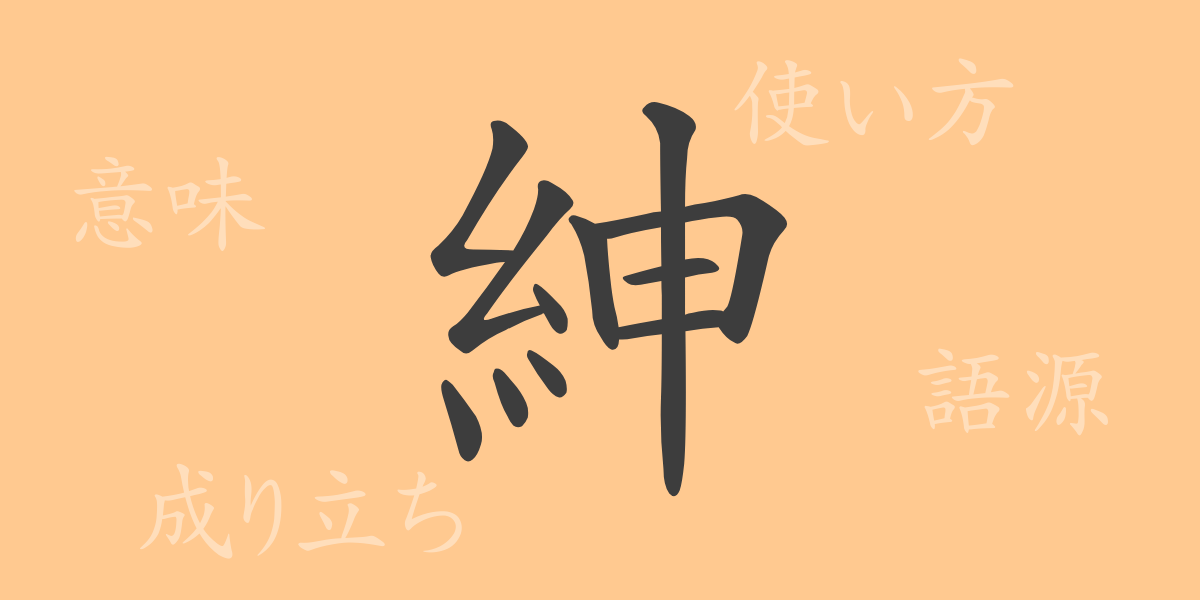Japanese is rich in Kanji, each with its own unique history and meaning. ‘紳’ is one such Kanji, widely recognized and used as a common character in Japan. This article delves deep into the world of ‘紳’, exploring its origins, meanings, applications, and the phrases and idioms associated with it.
Origins of 紳 (しん)
The Kanji ‘紳’ evolved from terms related to thread, as indicated by its composition. Originally used to denote clothing, it gradually came to represent noble status and position. This evolution reflects the historical significance of clothing as a symbol of social status.
Meaning and Usage of 紳
‘紳’ is commonly used in words such as ‘gentleman’ (紳士, しんし) and ‘nobleman’ (紳族, しんぞく), referring to a noble person or someone who is both cultured and well-mannered. In modern Japan, it is particularly used to describe a gentleman, typically indicating a man of dignity and refinement.
Readings, Stroke Count, and Radical of 紳
The Kanji ‘紳’ has unique readings and a distinctive structure:
- Readings: On’yomi ‘シン’, no Kun’yomi readings.
- Stroke Count: 15 strokes.
- Radical: Its radical is ‘糸’ (いとへん), related to thread.
Phrases, Idioms, and Proverbs Using 紳
‘紳’ appears in various idioms and phrases that reflect its symbolic meanings:
- 紳士 (しんし): Refers to a cultured and polite man.
- 紳士協定 (しんしきょうてい): An informal agreement based on mutual trust, lacking legal binding.
- 紳士的 (しんしてき): Describes behavior that is gentlemanly, refined, and courteous.
Conclusion on 紳
The Kanji ‘紳’, deriving from clothing and symbolizing nobility and education, continues to be relevant in modern Japanese society, emphasizing a culture that values politeness and dignity. Remembered by its On’yomi ‘シン’ and written with 15 strokes, ‘紳’ manifests in words like ‘gentleman’, reflecting the deep-rooted history and values embedded in this character. Through everyday usage of terms like ‘gentleman’, we can appreciate the historical and cultural significance encoded in ‘紳’.

























